Few places on Azeroth exemplify this ever-changing dynamic more than the Twilight Highlands of the Eastern Kingdoms.
The highlands have undergone constant upheaval throughout their history, with races and factions thriving, collapsing, and changing seemingly without pause. The fortress-city of Grim Batol has played host to no fewer than three potent factions: the Wildhammer dwarves, who abandoned their home after a Dark Iron curse left it uninhabitable; the red dragonflight, which was forced to fight for the Horde in the captivity of the Dragonmaw orcs during the Second War; and, of course, the Dragonmaw themselves, who were driven from Grim Batol when the red dragonflight was finally freed from their grasp.
The Dragonmaw now cling to the edges of the highlands. They're no less wild and difficult to deal with than when they ruled Grim Batol, but their knowledge of dragons and warfare is of unquestionable importance, especially amidst the chaos of the Cataclysm. The Wildhammer dwarves dwell in forested outposts among the highlands' mountains; though long friendly with the Alliance, they have only now begun to consider casting their lot in with Stormwind and Ironforge thanks to the entreaties of their cousins, the Bronzebeard clan. Even the mighty red dragonflight has suffered greatly in recent months: its members have been decimated by a frenzied, newly aggressive black dragonflight attacking relentlessly from the petrified Obsidian Forest.
Amidst this upheaval, a new power has come to possess the highlands.
Though the environment has been given many names throughout its history, it's only been dubbed "Twilight" thanks to the dominance of its current masters. The fanatical Twilight's Hammer cultists appreciate the name, but there are more functional features to the swath of land they've chosen as their headquarters. It's rimmed by massive mountain peaks that scrape at the sky like fingernails, making invasion by land nearly impossible, and the highlands' black-glass beaches ensure that marine assaults are fraught with terror; ships docking on the peninsula risk running aground.
More important to the cult, however, is the promise of worldly extinction and change that permeates the land. In the dimness of the highlands, shadows are deeper. The sun and the rest of Azeroth seem distant. The elements themselves are more pronounced: fires burn hotter; rain forces its way into the ground; and the heaves and shudders of the land call to mind some colossal being stirring beneath the earth. This doesn't frighten the members of the Twilight's Hammer; it lulls them to sleep.
Their dark work is done here in a manner that could never have been realized in Silithus. The devoted of the Twilight's Hammer train in the halls of mighty fortresses, not tiny compounds and outposts. They summon dangerous, mercurial elementals who loathe each other to the point of outright war but still pause their feuds momentarily to work towards the destruction of the other races. Outside the highlands, the cult is fractious and divided. Here, it is guided on its mission of destruction by some of the cruelest and bloodiest names in history, yet the names associated with this cabal belie the true extent of its leadership.
These dark whisperers chose the highlands as their base of operations for a reason. They can feel the presence of the Old Gods in the air and see their victory in the darkness. The shifting landscape, battling factions, and wicked elements embody the cult's vision of what its world will become as it is finally purged of life and order. The rest of Azeroth will follow the Twilight Highlands into oblivion, one way or another.
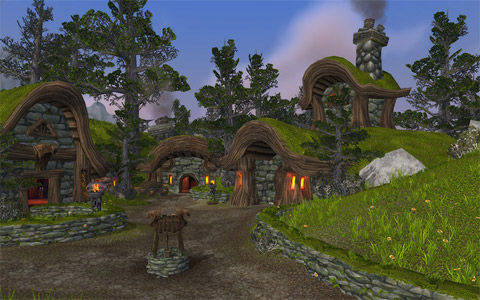
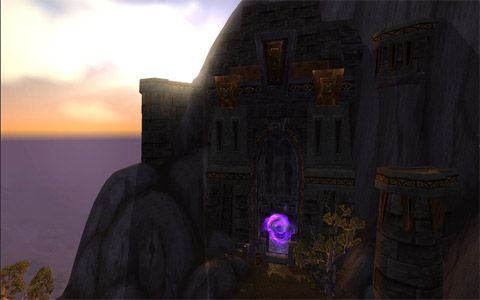
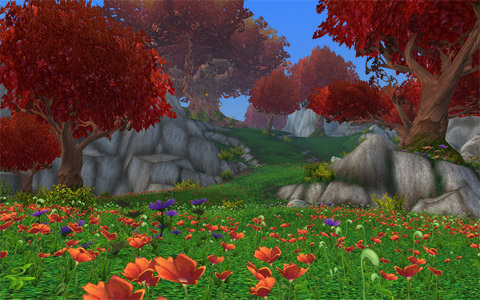
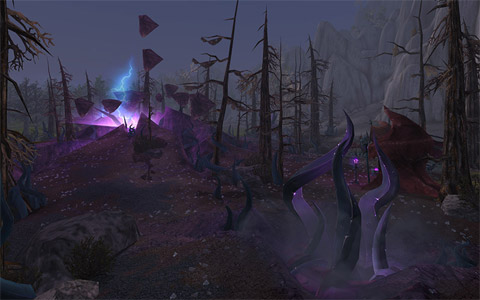
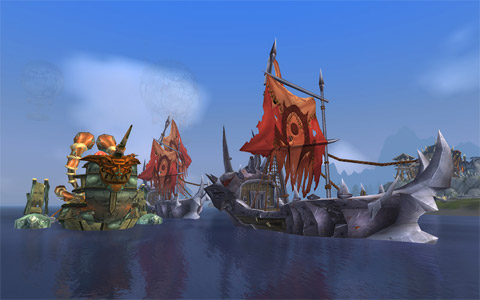
Links
WoW-Europe.com - Source







